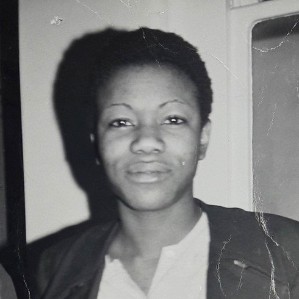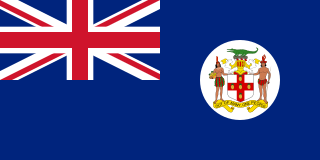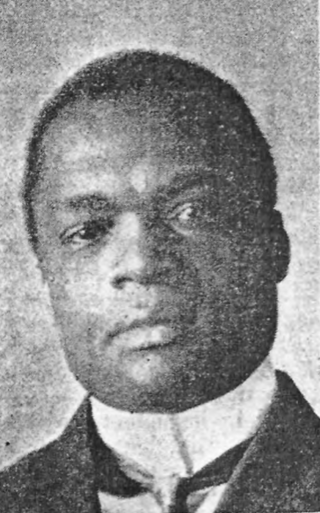
Marcus Mosiah Garvey Jr. was a Jamaican political activist. He was the founder and first President-General of the Universal Negro Improvement Association and African Communities League, through which he declared himself Provisional President of Africa. Ideologically a black nationalist and Pan-Africanist, his ideas came to be known as Garveyism.

Pan-Africanism is a worldwide movement that aims to encourage and strengthen bonds of solidarity between all indigenous and diasporas of African ancestry. Based on a common goal dating back to the Atlantic slave trade, the movement extends beyond continental Africans with a substantial support base among the African diaspora in the Americas and Europe.
Brixton is a predominantly working class suburb of Johannesburg, South Africa. It is the site of the landmark Sentech Tower, and is near the suburbs of Auckland Park and Melville.
In politics and history the Black Unity and Freedom Party (BUFP) was a political organisation that was part of Britain's Black Power and Radical left movements.
TransAfrica is an advocacy organization in Washington, D.C. that seeks to influence the foreign policy of the United States concerning African and Caribbean countries and all African diaspora groups. They are a research, education, and advocacy center for activism focusing on social, economic and political conditions in Africa, the Caribbean, and Latin America and other parts of the African Diaspora. They are the largest and oldest social justice organization in the United States that focuses on the African world. They have served as a major research, educational, and organizing institution for the African and African Descendant communities and the U.S. public in general.

British African-Caribbean people are an ethnic group in the United Kingdom. They are British citizens whose ancestry originates from the Caribbean or they are nationals of the Caribbean who reside in the UK. There are some self-identified Afro-Caribbean people who are multi-racial. The most common and traditional use of the term African-Caribbean community is in reference to groups of residents continuing aspects of Caribbean culture, customs and traditions in the UK.

Amy Ashwood Garvey was a Jamaican Pan-Africanist activist. She was a director of the Black Star Line Steamship Corporation, and along with her former husband Marcus Garvey she founded the Negro World newspaper.
Horace G. Campbell is an international peace and justice scholar and Professor of African American Studies and Political Science at Syracuse University in Syracuse, New York. Born in Montego Bay, Jamaica, he has been involved in Africa's Liberation Struggles and in the struggles for peace and justice globally for more than four decades. From his years in Toronto, Canada, to his sojourns in Uganda, Tanzania, Zimbabwe, the United Kingdom and parts of the Caribbean, he has been an influential force offering alternatives to the hegemonic ideas of Eurocentrism. In an attempt to theorise new concepts of revolution in the 21st century he has been seeking to expand on the ideas of fractals and the importance of emancipatory ideas. He currently teaches in the Department of African American Studies at Syracuse University.

Olive Elaine Morris was a Jamaican-born British-based community leader and activist in the feminist, black nationalist, and squatters' rights campaigns of the 1970s. At the age of 17, she claimed she was assaulted by Metropolitan Police officers following an incident involving a Nigerian diplomat in Brixton, South London. She joined the British Black Panthers, becoming a Marxist–Leninist communist and a radical feminist. She squatted buildings on Railton Road in Brixton; one hosted Sabarr Books and later became the 121 Centre, another was used as offices by the Race Today collective. Morris became a key organiser in the Black Women's Movement in the United Kingdom, co-founding the Brixton Black Women's Group and the Organisation of Women of African and Asian Descent in London.
Milner Langa Kabane Fort Hare Alumni, GCOB was an educator, newspaper editor, human rights activist and a pioneer of the first "Bill of Rights" version in South Africa, which was unanimously adopted by many progressive organisations including the African National Congress in 1943.
The Department of African American Studies (AAS) at Syracuse University is an academic department supporting Africana studies. It is located at Syracuse University in Syracuse, New York. It is part of the Syracuse University College of Arts and Sciences. The Department supports an external community based unit that is a part of the department and has played a central role in shaping culture and arts in the Syracuse city community - Community Folk Art Center (CFAC). It has also supported the Paul Robeson Performing Arts Company (PRPAC) in the past. These are both independent units that were housed or founded by the department The department also houses the award-winning library, the Martin Luther King Jr. Memorial Library. It currently oversees the internationally recognized university wide initiative "Africa Initiative". Its other projects include the nationally recognized "Paris Noir" and the Ford Foundation Environmental Justice and Gender Project. It has had a long history of activism within the university, surrounding community, and abroad through its strong international network. The AAS department has housed many renowned scholars in African, Afro-Caribbean, African-American, Afro-Latin American, and Afro-European studies.

The Crown Colony of Jamaica and Dependencies was a British colony from 1655, when it was captured by the English Protectorate from the Spanish Empire. Jamaica became a British colony from 1707 and a Crown colony in 1866. The Colony was primarily used for sugarcane production, and experienced many slave rebellions over the course of British rule. Jamaica was granted independence in 1962.
Richard Hart was a Jamaican historian, solicitor and politician. He was a founding member of the People's National Party (PNP) and one of the pioneers of Marxism in Jamaica. He played an important role in Jamaican politics in the years leading up to Independence in 1962. He subsequently was based in Guyana for two years, before relocating to London in 1965, working as a solicitor and co-founding the campaigning organisation Caribbean Labour Solidarity in 1974. He went on to serve as attorney-general in Grenada under the People's Revolutionary Government in 1983. He spent the latter years of his life in the UK, where he died in Bristol.
For a history of Afro-Caribbean people in the UK, see British African Caribbean community.
Nubian Jak Community Trust (NJCT) is a commemorative plaque and sculpture scheme founded by Jak Beula that highlights the historic contributions of Black and minority ethnic people in Britain. The first NJCT heritage plaque, honouring Bob Marley, was unveiled in 2006 after "two years of research and behind the scenes negotiating". The scheme has been run and managed by the not-for-profit organization Nubian Jak Trust Ltd since August 2016, with a remit to commemorate and celebrate the diverse history of modern Britain. Its objectives include the promotion of social equality and to encourage activities that promote cultural diversity in society.

The African and Caribbean War Memorial in Brixton, London, is the United Kingdom's national memorial to African and Caribbean service personnel who fought in the First and Second World Wars. It originated with a project for a memorial to Caribbean Royal Air Force veterans of World War II who arrived in Britain in 1948 on the MV Empire Windrush; this was an extension of the commemorative plaque and sculpture scheme run by the Nubian Jak Community Trust to highlight the historic contributions of Black and minority ethnic people in Britain. The memorial was originally to have been placed at Tilbury Docks, as part of the commemoration for the centenary of the outbreak of World War I. However, as the project began to evolve into a larger tribute that included both World Wars and commemorated servicemen and women from both Africa and the Caribbean, it was agreed by the memorial recipient – the Port of Tilbury – and the project organisers that a new, more accessible location needed to found. The memorial was ultimately permanently installed and unveiled on 22 June 2017 in Windrush Square, Brixton.

Dr. Robert Carr was a Trinidadian scholar and human rights activist who dedicated his life to bringing public attention to issues related to stigma and discrimination against persons living with or affected by HIV/AIDS.
Beverley Bryan is a Jamaican educationist and retired academic who was a professor of language education at the University of the West Indies in Mona. Settling in Britain with her parents in the late 1950s, she went on to become a founding member of the Brixton Black Women's Group and co-authored the 1985 book The Heart of the Race: Black Women's Lives in Britain.

The African Association, known as the Pan-African Association after 1900, was an organization formed by leaders of African descent to "promote and protect the interests of all subjects claiming African descent, wholly or in part, in British colonies and other place, especially Africa, by circulating accurate information on all subjects affecting their rights and privileges as subjects of the British Empire, by direct appeals to the Imperial and local Governments." Henry Sylvester Williams initiated the creation of the African Association, which was formalized on September 14, 1897, at its headquarters in London. The Association is best known for organizing the First Pan-African Conference, which took place in London in July 1900.
Gerlin Bean is a Jamaican community worker who was active in the radical feminist and Black nationalist movements in the United Kingdom in the 1960s and 1970s. Trained as a nurse, she became a dedicated community activist and social worker, involved in the founding of the Black Women's Action Committee of the Black Unity and Freedom Party, the women's section of the Black Liberation Front, the Brixton Black Women's Group, and the Organisation of Women of African and Asian Descent (OWAAD). Bean's work and activism focused on eliminating discriminatory policies for people of color, women, and people with disabilities. She fought for equal educational opportunity, fair wages, adequate housing, and programs that supported families, such as counseling services, child care, and health care.








